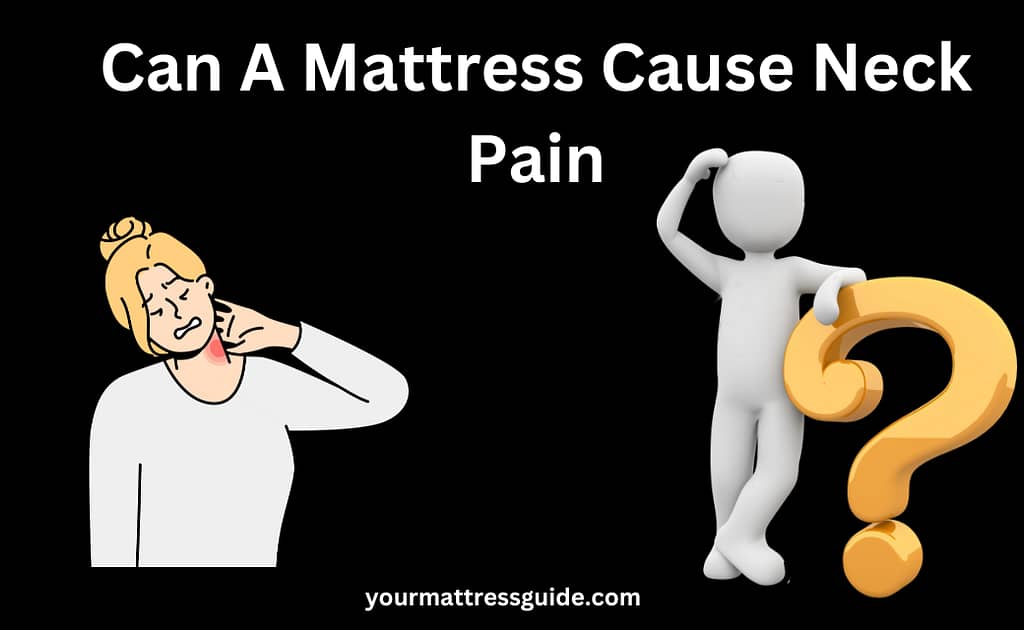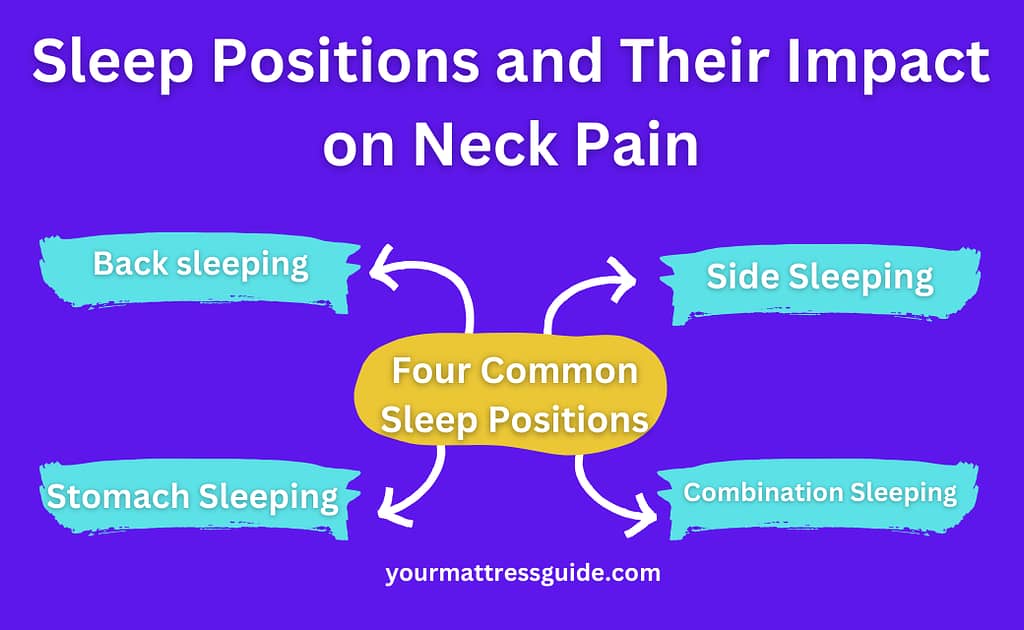Are you waking up with a stiff and achy neck? It could be due to your mattress. Yes, your mattress could be the culprit behind your neck pain. Many people underestimate the impact that a mattress can have on their overall sleep quality and comfort.
Can A Mattress Cause Neck Pain
The wrong mattress can create misalignment in your spine, putting unnecessary strain on your neck muscles and leading to pain and discomfort. But don’t worry, there is a solution. By choosing the right mattress and pillow, you can alleviate your neck pain and wake up feeling refreshed and pain-free.
In this article, we will explore can a mattress cause neck pain, and provide you with tips on selecting the best mattress for neck pain relief. So, let’s dive in and discover how you can improve your sleep and bid farewell to neck pain.

Understanding the Relationship Between Mattress and Neck Pain
Do you ever wake up with a stiff neck and wonder if your mattress could be the culprit? Well, you’re not alone. Many people experience neck pain after sleeping, and the mattress could indeed be to blame.
Understanding the relationship between your mattress and neck pain is crucial in finding relief. When it comes to neck pain, the role of the mattress is significant. A mattress that fails to provide adequate support can lead to improper spinal alignment, resulting in strain on the neck muscles. A mattress that is too soft may cause your neck to sink too deeply, while a mattress that is too firm may not contour to your body’s natural curves. Both scenarios can put unnecessary pressure on your neck, leading to discomfort and pain.
To prevent neck pain, it’s essential to choose a mattress that offers the right balance of support and comfort. Look for a mattress that provides proper spinal alignment, allowing your neck and spine to rest in a neutral position. Additionally, opt for a mattress that contours your body, distributing your weight evenly and alleviating pressure points.
Your mattress can indeed cause neck pain if it fails to provide adequate support and alignment. By selecting a mattress that meets your individual needs, you can wake up feeling refreshed and free from neck pain. There are also rumors about mattresses that their springs can kill you. Check our article Can A Mattress Spring Kill You to find the truth.
Choosing the Right Mattress for Neck Pain Relief
Selecting the appropriate mattress for alleviating discomfort in the neck entails considering various factors such as firmness, support, and sleep position preferences.
When it comes to firmness, a medium-firm mattress is generally recommended for neck pain relief. It provides adequate support for the neck while also contouring to the body’s natural curves. This helps to maintain proper spinal alignment and reduce strain on the neck muscles.
In terms of support, it’s essential to choose a mattress that offers sufficient support to keep the spine aligned, especially in the neck region. Look for mattresses with good support systems such as pocketed coils or high-density foam. These materials provide the necessary support to prevent the neck from sinking too much into the mattress, which can lead to discomfort.
Considering your sleep position preferences is also crucial when selecting a mattress for neck pain relief. If you sleep on your back, a medium-firm mattress is generally the best option. It offers optimal support for the neck and spine. For side sleepers, a slightly softer mattress may be more suitable as it allows for better shoulder and neck contouring.
Choosing the right mattress for neck pain relief involves considering factors such as firmness, support, and sleep position preferences. By selecting a mattress that meets these criteria, you can improve your sleep quality and alleviate discomfort in the neck. If you want to know about cooltex mattresses, check our blog on Who Makes Cooltex Mattresses.
Considering Mattress Firmness and Support
When it comes to finding the right mattress for alleviating discomfort in your neck, it’s essential to consider the level of firmness and support that will best suit your needs.
The firmness of a mattress refers to how hard or soft it feels when you lie down on it. Here are three factors to consider when choosing the firmness of your mattress:
1. Personal Preference: Everyone’s comfort level is different, so it’s important to choose a mattress that feels right for you. If you prefer a softer feel, a plush or medium-firm mattress may be the best option. If you prefer a firmer feel, a medium or firm mattress may be more suitable.
2. Sleeping Position: Your preferred sleeping position can also influence the level of firmness you need. For example, side sleepers often find that a medium or medium-firm mattress provides the right balance of support and comfort. Back sleepers may benefit from a firmer mattress that helps maintain proper spinal alignment.
3. Body Weight: Your body weight can affect how a mattress feels to you. Heavier individuals may find that a firmer mattress provides better support, while lighter individuals may prefer a softer feel.
Overall, finding the right level of firmness and support in a mattress can help alleviate neck pain and promote a better night’s sleep. Consider your personal preferences, sleeping position, and body weight to guide your decision-making process. Remember, everyone’s unique, so take the time to find the mattress that suits your specific needs.
Evaluating Pillow Options for Neck Support
To ensure a comfortable and supportive sleep experience, it’s important to evaluate different pillow options that can help alleviate any discomfort you may feel in your neck area. When it comes to neck support, there are a few key factors to consider.
Firstly, you’ll want to look for a pillow that provides the right level of firmness. A pillow that’s too soft may not provide enough support for your neck, while a pillow that’s too firm could cause unnecessary strain. It’s all about finding that perfect balance.
Another important factor to consider is the shape of the pillow. A contoured or cervical pillow can be a great option for neck support as it’s specifically designed to cradle your neck and align your spine. These pillows often have a dip in the center, allowing your head to rest comfortably while keeping your neck properly supported.
Lastly, take into account the material of the pillow. Memory foam pillows are known for their ability to contour to your body shape, providing personalized support. They can be particularly beneficial for those with neck pain as they help distribute pressure evenly. However, it’s important to note that everyone is different, so what works for one person may not work for another.
Finding the right pillow for neck support is crucial in preventing and alleviating neck pain. By considering factors such as firmness, shape, and material, you can ensure a restful and pain-free sleep. Plus check out our article on Can A Gel Memory Foam Mattress Freeze for more information.
Sleep Positions and Their Impact on Neck Pain

One of the most crucial factors affecting your comfort level when sleeping is the position you choose, and it can significantly impact your overall sleep quality.
Here are four common sleep positions and their impact on neck pain:
1. Back sleeping: Sleeping on your back with a pillow that supports the natural curve of your neck can help alleviate neck pain. This position allows for proper alignment of the head, neck, and spine.
2. Side sleeping: If you prefer sleeping on your side, make sure to use a pillow that fills the gap between your neck and shoulder. This helps keep your spine in a neutral position and reduces strain on your neck.
3. Stomach sleeping: Sleeping on your stomach can strain your neck and lead to pain. It’s best to avoid this position as much as possible. If you can’t break the habit, try using a thin pillow or no pillow at all to minimize strain on your neck.
4. Combination sleeping: Many people change positions throughout the night. If you are a combination sleeper, make sure to have a pillow that is versatile and provides adequate support in different positions.
Remember, finding the right sleep position and using the appropriate pillow can go a long way in preventing and reducing neck pain. Experiment with different positions and pillows to find what works best for you.
Can A Mattress Cause Neck Pain Conclusion
In conclusion, can a mattress cause neck pain depends entirely on choosing the right mattress. It’s important to consider the firmness and support of the mattress, as well as the pillow options for proper neck support. Additionally, your sleep position can also impact neck pain.
By understanding the relationship between your mattress, pillow, and sleep position, you can make informed decisions to alleviate neck pain and improve the quality of your sleep. Don’t let a mattress be the cause of your neck pain – make the right choice for a pain-free night’s sleep. For deep knowledge about mattresses check our Beginners Guide To Mattresses article.


